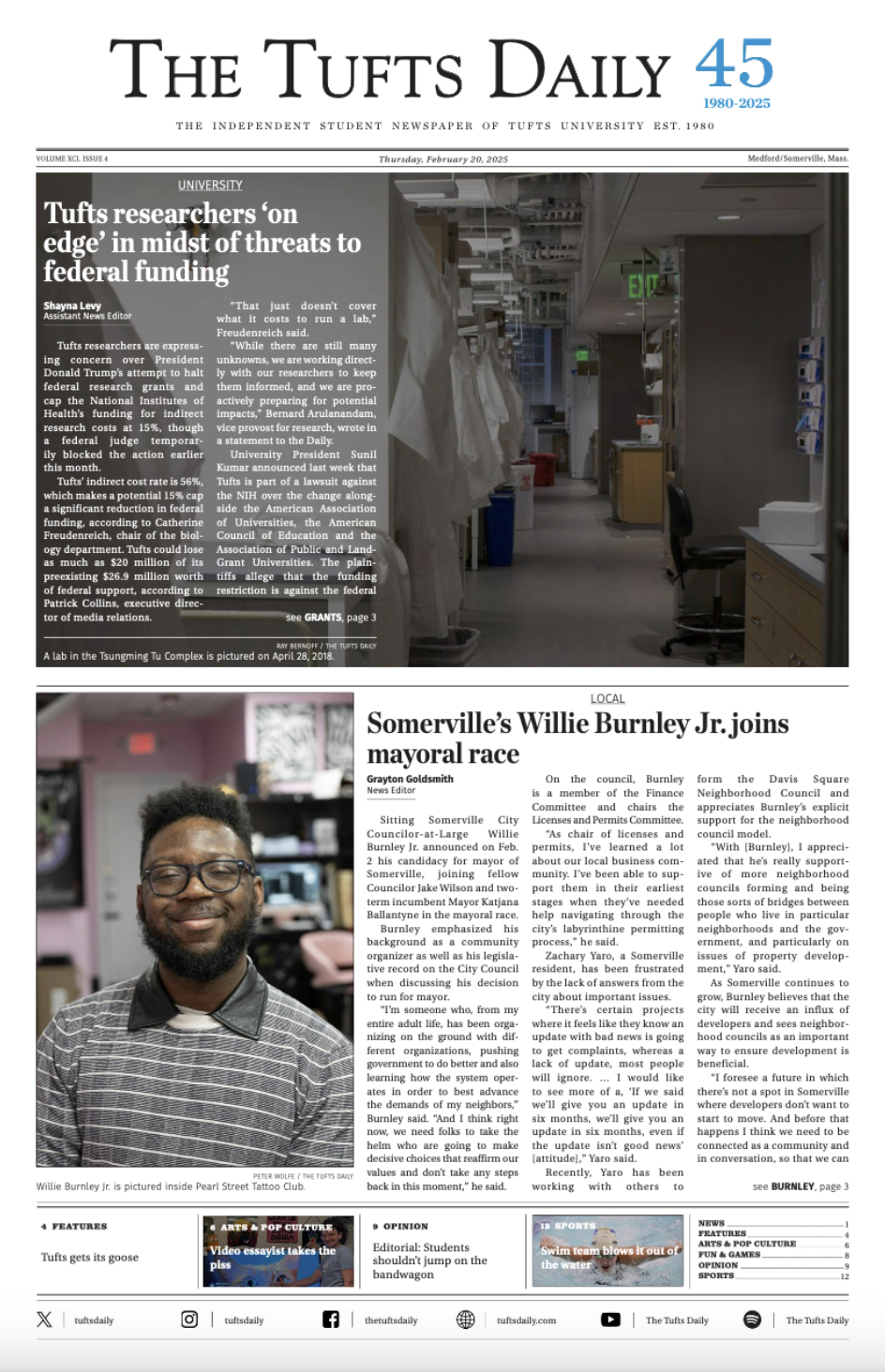U.S. President George Bush delivered his 5th annual State of the Union address Jan. 1.
He spoke at length about Iraq, the War on Terror and rising energy prices, but Tufts professors say a cautious tone marked his discourse as he addressed the nation after an "unenviable" year of harrowing war in Iraq, the devastation of Hurricane Katrina and approval ratings that at times dropped below 40 percent.
The President spent more than half of his speech talking about foreign policy issues that included progress in Iraq, and potential nuclear threats in Iran.
In light of faltering public support for the war, "the president was very much on the defensive...in trying to justify his foreign policy initiatives," Associate Political Science Professor Jeff Taliaferro said.
Assuring success on these issues was a priority for maintaining public confidence, Political Science Professor Berry said. "Terrorism and Iraq are the signatures of this administration, and the President was intent on making his case," Berry said.
On the domestic front, President Bush focused on America's "addiction to oil" and various initiatives to reduce dependence on Middle East oil by 75 percent before the year 2025.
He also spoke about progress on education and medical reforms, but Berry and Assistant Political Science Professor Deborah Schildkraut both said the progress Bush cited was unlikely to alleviate American's concerns about rising oil prices and medical bills.
"The average American probably doesn't feel that there is any significant improvement," Berry said.
Though the general State of the Union address is "never long on details," Berry said, professors found this years' discourse particularly vague.
"He doesn't want to be a liability to the Republicans for the Congressional elections," Schildkraut said, referring to the mid-term elections taking place later this year.
Bush said that by funding cuts to a host of poorly performing programs, America is making good progress on its goal of halving the budget deficit by 2009.
Berry finds the realization of this goal highly unlikely. "There are a lot of bills coming in, especially from Medicare," he said.
Schildkraut said that while the President still held many of his same goals-such as Social Security reform-he did not articulate very concrete plans due to recent disappointments in his legislative agenda.
"He is probably thinking of new ways to work with Congress... his time is running out to have long-lasting legislative impact," Schildkraut said.
"State of the Union [addresses] never do well in addressing the average American's concerns," she added.





